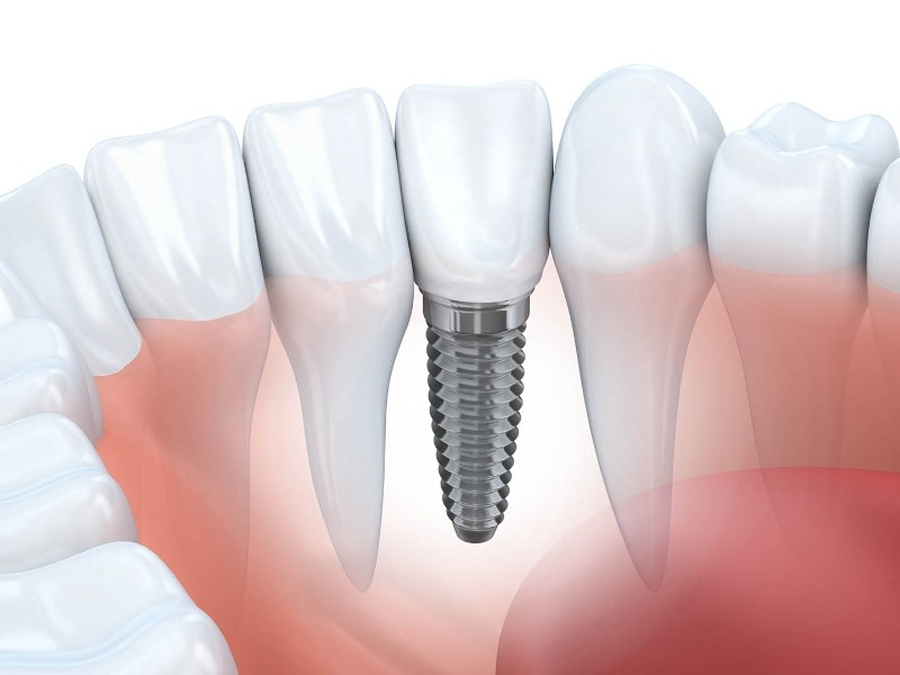
Implants
Implants, the best fixed dentures
Dental implants are used to replace lost natural teeth. They look the most like natural teeth. Can be used like natural teeth, allowing you to return to living a happy life. Implants are made from pure titanium. It has a shape similar to the root of a natural tooth. The dentist will place the implant into the jawbone. To act as a replacement for lost tooth roots
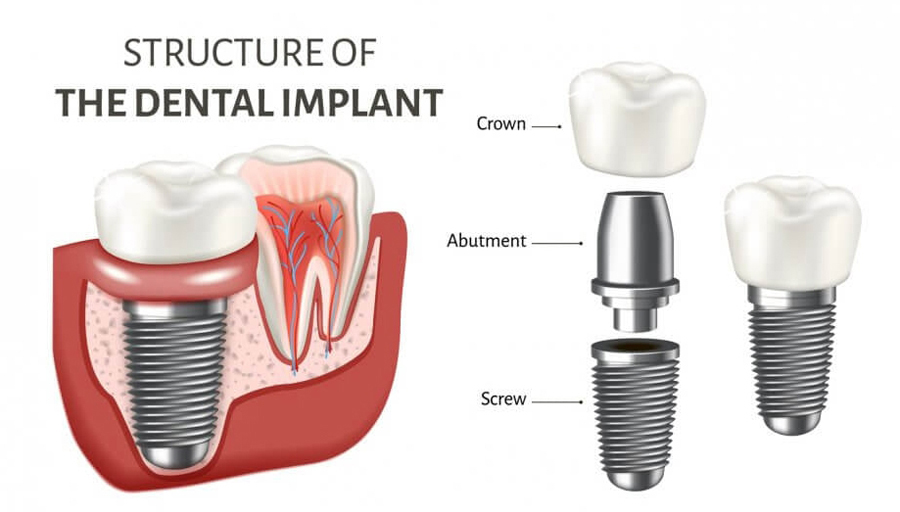
Components of Implants
- Crown (tooth crown) looks like a natural tooth
- Abutment (abutment to receive the crown) made from Titanium or Zirconium and will be attached to the implant.
- Fixture/Implant (Dental Implant) The implant is made from Titanium coated with Nano-Calcium lons, resulting in the implant being firmly and quickly attached to the jaw. without causing inflammation They are designed to look like natural teeth.
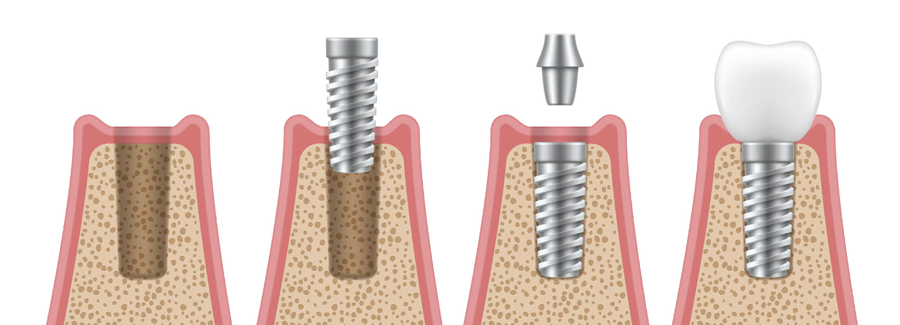
Steps for making dental implants
Step 1. Examination and consultation
The dentist will evaluate and examine the condition of the tooth to determine whether it is suitable for any type of implant and whether or not it will require bone augmentation.
Step 2. Inserting the implant
The dentist will place the implant into the jawbone. The implant will fuse with the jawbone and serve as the tooth root for the Abutment.
Step 3. Installing the Abutment to support the crown
The dentist will place an abutment onto the root of the tooth to shape the gums. and prepare to support the wearing of crowns
Step 4. Placement of crown
The dentist will place a crown that is designed to be similar in shape and color to the adjacent tooth onto the abutment.
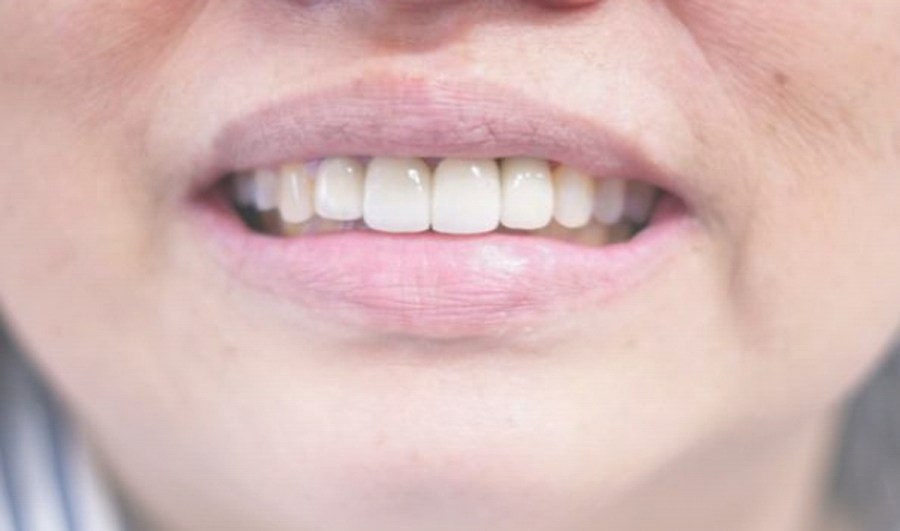
Advantages of having dental implants
- Restore the structure of the face so that it doesn’t lose its shape.
- Increase confidence in smiling
- The strength of the dental implants will improve the efficiency of chewing, resulting in better digestion.
- Looks as beautiful as natural teeth as possible
- No need to grind your teeth. And there is no loss of tooth tissue in good parts of adjacent teeth like with a dental bridge.
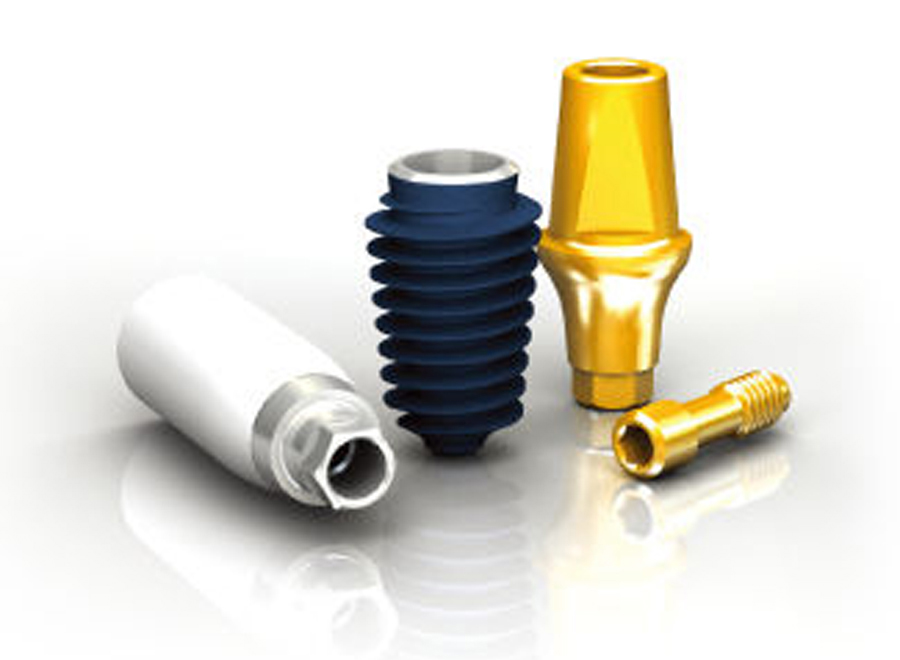
การดูแลรักษารากเทียม
- รักษาสุขภาพความสะอาดในช่องปาก
- แปรงฟันให้สะอาด และใช้ไหมขัดฟัน
- ปฏิบัติตามคำแนะนำของทันตแพทย์
- พบทันตแพทย์เพื่อติดตามผลการรักษาตามระยะที่นัดหมายอย่างสม่ำเสมอ
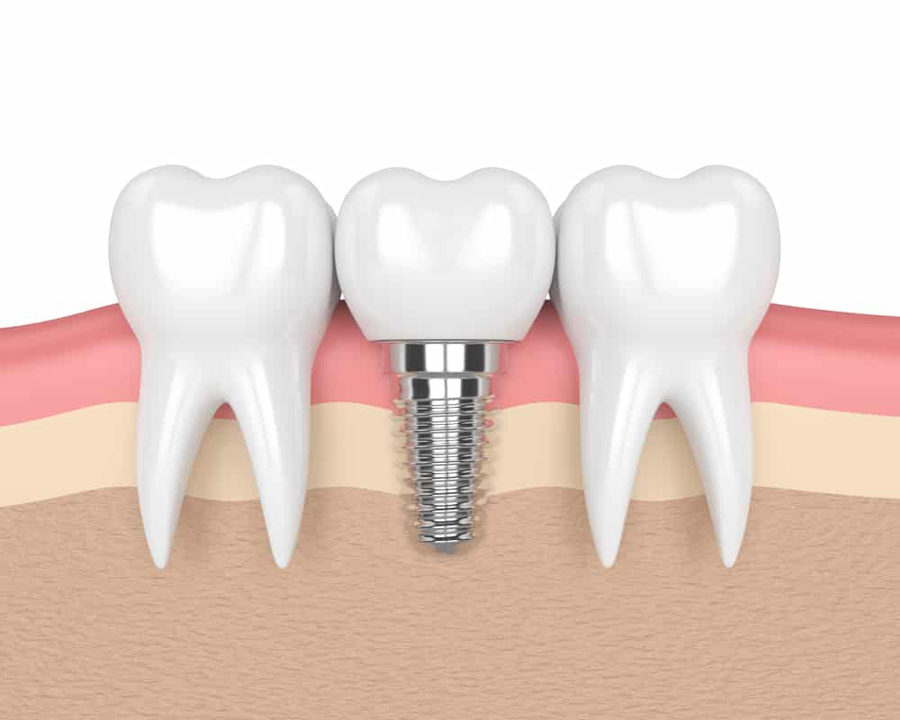
FAQ for dental implants
Q: Lifespan of dental implants
A: Dental implants can last 10 – 20 years if the patient takes good care of cleaning. By not chewing too much on hard things as it may cause the implant cover to break and by regularly visiting the dentist at every appointment, you will be able to prolong its lifespan.
Q: Is getting an implant painful?
A: For dental implants, anesthesia will be injected before the surgery begins. This depends on the sensitivity of each patient’s nerves. The level of pain will vary. But in most patients, when anesthesia is put in, they won’t feel any pain during the surgery. The dentist will monitor your condition throughout the surgery. If you feel pain, the dentist will give you additional anesthesia to stop the pain.
Q: At what age should you get dental implants?
A: Over 18 years of age because the jaw bone has grown quite fully.

Bone grafting
Bone grafting (BONE GRAFT) is the strengthening of tooth bone. or adding bone in the jaw area to be strong enough to support implant placement Normally, our bones will break down as we age. This causes the bone volume to decrease until the bones become thin. Or in other cases, such as tooth extraction, tooth loss that has been left for so long that the bone around the tooth decays and deforms.
How to take care of yourself after bone grafting
- Within 24 hours after surgery, be careful of any impact on the mouth. Eat light food. Refrain from sucking water or food from the tube until the surgical wound has healed.
- Stop drinking alcoholic beverages. Because alcohol will stop the blood from flowing. and makes the wound heal slowly It has a negative effect on dental implants and wounds from surgery.
- Smoking is prohibited. Studies have shown that smoking slows down the effectiveness of treatment.
- Avoid strenuous exercise and activities in the first 1 – 3 days after bone and tooth transplant. To prevent impact Or the blood is pumped so that blood returns to flow from the wound.







